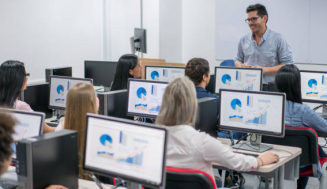BECE Past Questions & Answers – 1991 (SCIENCE)
August 1991
SCIENCE
SECTIONA OBJECTIVETEST
45 minutes
1. Thedigestion of carbohydrates starts in the
A. mouth
B. throat
C. stomach
D. duodenum
E. ileum
2. Photosynthesisin plants requires chlorophyll, sunlight, waterand
A. oxygen
B. carbondioxide
C. steam
D. hydrogen
E. nitrogen
3. Which ofthe following objects is a goodconductorof heat?
A. Wood B. Rubber C. Copper D. Plastic E. Wool
4. What is the work donewhen a forceof 2.5N moves throughadistanceof 4 m?
A. 0.6 J B. 1.5 J C. 1.6 J D. 6.5 J E. 10.0 J
5. Theperson who studiesthe weather is
A. apilot
B. aphysician C. an astronaut D. an astrologer E. meteorologist
6. A child suffering fromKwashiorkorlacks
A. protein
B. fats and oils
C. vitamins
D. mineral salts
E. carbohydrates
7. Which ofthe following substances can dissolve almost all solutes?
A. Kerosene B. Palmoil C. Water
D. Turpentine
E. Petrol
8. All of the followingmethods areusedto preservefood in our homes except
A. smoking
B. salting C. boiling D. canning E. drying
9. The chemical symbolfor Potassium is
A. Fe B. K C. P D. Pb E. Zn
10. Thepart ofthe bananaplant used in reproductionis called
A. sucker B. rhizome C. stem
D. tuber
E. bulb
11. Theprocess bywhich kerosene rises up thewick in alantern is
A. evaporation B. conduction C. diffusion
D. capillarity
E. convection
12. Which ofthe following animals can liveboth in water and on land?
A. Mouse
B. Rat
C. Frog
D. Grasscutter
E. Mud fish
13. A bar magnetattracts allthe followingobjects except
A. pins
B. pair ofscissors
C. nails
D. razorblade
E. glass
14. When an object moves from rough surfaceonto asmooth one with the same energy, its speed
A. increases
B. decreases
C. remains thesame
D. becomes zero
E. cannot be determined
15. Howmanystates of matterdo wehave?
A. 2
B. 3
C. 4
D. 5
E. 6
16. All of the following animals layeggsexcept
A. fish
B. lizard C. rabbit D. toad
E. turkey
17. Which oftheseis not a sense organ?
A. Eye B. Ear C. Nose D. Skin
E. Heart
18. Which ofthe following processes is used to separate insoluble solids from liquids?
A. Distillation B. Sublimation C. Filtration
D. Evaporation
E. Sedimentation
19. An organismlivingon anotherorganismand causingharm to it is referredto as a
A. host
B. parasite C. producer D. consumer E. vector
20. What sickness areyou likelyto be suffering fromwhenyou haveblood inyoururine?
A. Typhoid B. Syphilis C. Cholera D. Bilharzia E. Ulcer
21. Which oftheseis a vegetable crop?
A. Pineapple
B. Potato
C. Cabbage D. Cassava E. Mango
22. Insects canwalk on thesurfaceof waterbecauseof
A. diffusion B. capillarity C. viscosity D. friction
E. surfacetension
23. When asubstanceis madeup ofthe same kind ofatoms itis called
A. amixture
B. a compound C. an element D. asolution
E. asolvent
24. What do human beingsobtain from food to enable them work?
A. Blood
B. Energy
C. Vitamins D. Proteins E. Minerals
25. Which oftheseinstruments is used in measuring humidity?
A. Hygrometer B. Thermometer C. Photometer
D. Potometer
E. Anemometer
26. Thepart ofthe plant which is found in the soil is the
A. flower B. stem C. leaf
D. root
E. fruit
27. When salt is put into soups, it
A. melts
B. sublimes C. dissolves D. evaporates E. expands
28. The complete development of ahuman babyin thewomb normallytakes
A. fivemonths
B. sixmonths
C. seven months
D. nine months
E. eleven months
29. Thewashingawayof thetop soilbyrunningwater is called
A. erosion
B. rotation
C. plantation D. weathering E. irrigation
30. All of the following are solids except
A. aluminium
B. lead
C. silver
D. potassium
E. mercury
31. Theprocess bywhich livingthings increasein numberis referred to as
A. growth
B. development
C. reproduction
D. multiplication
E. addition
32. Which ofthe following soiltypes can hold theleast amount of water?
A. Loam B. Clay C. Silt
D. Sand
E. Sandyloam
33. When apieceofcandle is heated, it changes from
A. liquid to gas
B. liquid to flame C. solid to flame D. solid to liquid E. solid to gas
34. Which ofthe following metals is used formakingroofingsheets?
A. Zinc
B. Silver
C. Mercury
D. Tin
E. Aluminium
35. What is the name ofthefinal product of protein digestion?
A. Glucose B. Fattyacid C. Amino acid D. Glycerol
E. Sucrose
36. Thelion is atypical exampleof
A. apet
B. a carnivore C. an omnivore D. aherbivore E. aparasite
37. A uniform mixtureof two or moremetals is called
A. asolute
B. a colloid
C. a compound D. asuspension E. an alloy
38. Which ofthe following activities illustrates distillation?
A. Preparation ofsoup
B. Preparation ofakpeteshie
C. Tappingof palmwine D. Preparation ofstarch E. Freezingof water
39. Thehatchingof eggs into chicken depends on constant supplyof
A. water
B. feed
C. pressure
D. heat
E. light
40. A fertilized ovule results in the formation of
A. an ovary
B. astyle C. apistil D. astigma
E. an embryo
CLICK TO VIEW ANSWERS TO OBJECTIVES
SCIENCESectionA SOLUTIONS OBJECTIVETEST
1. A. mouth
2.
B.
carbondioxide
3.
C.
Copper
4.
E.
10.0 J
5.
E.
meteorologist
6.
A.
protein
7.
C.
Water
8.
D.
canning
9.
B.
K
10.
A.
sucker
11.
D.
capillarity
12.
C.
Frog
13.
E.
glass
14.
A.
increases
15.
B.
3
16.
C.
rabbit
17.
E.
Heart
18.
C.
Filtration
19. B. parasite
20.
D.
Bilharzia
21.
C.
Cabbage
22.
E.
surfacetension
23.
C.
an element
24.
B.
Energy
25.
A.
Hygrometer
26.
D.
root
27.
C.
dissolves
28.
D.
nine months
29.
A.
erosion
30.
E.
mercury
31.
C.
reproduction
32.
D.
Sand
33.
D.
solid to liquid
34.
E.
Aluminium
35.
C.
Amino acid
36.
B.
a carnivore
37.
E.
an alloy
38.
B.
Preparation ofakpeteshie
39.
D.
heat
40.
E.
an embryo





